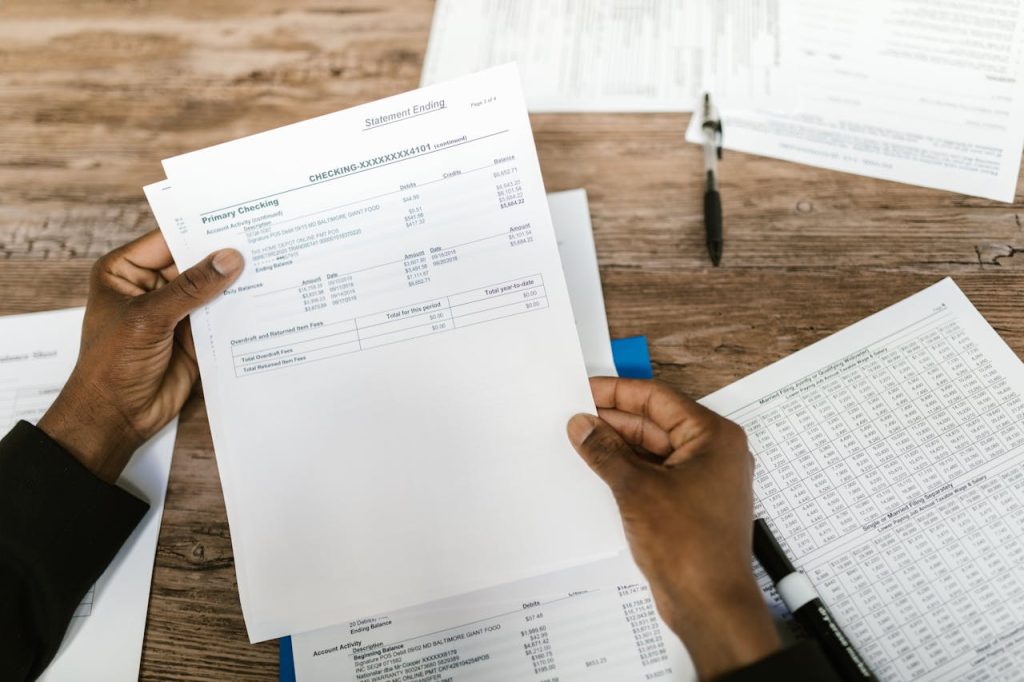Does a Business Loan Affect Your Personal Credit?
What every small business owner needs to know before signing the dotted line

Whether you have an original idea for a cafe food truck, want to expand your Etsy side hustle into a brick-and-mortar boutique, or take your marketing company to the next level, your dream needs dollars to become a reality.
While you can bootstrap your idea or find investors to get it off the ground, a business loan is also a viable option. However, when you fill out the loan application, you might pause, wondering whether taking the loan will affect your personal credit, and if so, how much?
The short answer to the question of whether a business loan will influence your personal credit is yes. Borrowing money for your company can impact your individual credit history and score. But depending on how you set up your business and the lender’s requirements, you could get financing without any effect on your credit.
What’s the difference between personal and business credit?
Your personal credit is a record of your individual financial history. Paying bills on time (including credit cards, student loans, and mortgages), not borrowing too much money, and not carrying large balances all demonstrate that you are trustworthy and responsible. Banks and other lenders look at your credit to determine whether they should extend a loan or credit to you, and for how much.
Credit profiles are tied to Social Security Numbers (SSN) and maintained by three credit bureaus: Equifax, Experian, and TransUnion.
Business credit is similar, but it’s based on the history of your business. Businesses have their own credit bureaus, with Dun & Bradstreet and Experian Business being the largest. This is an entirely separate account that doesn’t reflect your personal credit history.
The fine line between “you” and “your business”
The biggest factor in a business loan’s impact on your credit is its structure. In other words, is your business its own entity, or is it you?
If you’re a sole proprietor, you are your business, and you bear full responsibility for everything that happens to it, both legally and financially. Not only will a business loan appear on your credit report, but it’s also your personal credit score and history that determine whether you even qualify for the loan. This can be both a positive and a negative, as paying back what you owe on time can help you build a positive history and give you access to more credit in the future. On the downside, if you default on the loan, your individual credit will take the hit.
You’re also personally responsible for the business loan if you structure the business as a partnership. Lenders will review the credit details of everyone in the partnership to make their decision, and hold each responsible for repayment. In a limited liability partnership (LLP), each partner is responsible for a percentage of the overall debt; however, this can still impact personal credit.
Structuring your company as a limited liability company or corporation means it operates as a separate legal entity from you. Shareholders in a limited liability corporation (LLC) aren’t liable for the company’s debts, so if your business can’t repay what it borrows, it won’t appear on your credit report.
Applying for a loan as an LLC doesn’t always mean you’re off the hook, though.

Personal guarantees and business loans
When you apply for a business loan, the lender makes their decision based on their assessment of your risk. They aren’t typically willing to take big risks, so they consider multiple factors to assess the risk of defaulting on the loan. These factors include your track record for paying other debts, how long you’ve been in business, your company’s financials, and more.
Depending on what they find out, they may request a personal guarantee for the loan. Essentially, this means that if your business can’t repay what it borrows, you’ll cover it out of your pocket.
A personal guarantee is more than just vouching for your business; it is a formal commitment. If your business encounters financial difficulties, falls behind on payments, or closes, you’re responsible for repaying the loan, and that obligation will affect your personal credit.
Recapping: When will business loans show up on personal credit, and when do they not?
So, when exactly will a business loan land on your personal credit report?
- You borrow money as a sole proprietor or partnership under your name.
- You sign a personal guarantee.
- You co-sign a business loan for someone else.
- You work with a lender that reports business activity to personal credit bureaus; some do, some don’t.
If the loan appears on your personal credit report, it can impact your credit utilization, payment history, and credit mix —the factors that make up your FICO score. If you pay on time, you won’t have any trouble; however, if you miss payments, your credit score will take a hit.
The business loan isn’t likely to show up on your personal credit when:
- Your business has a separate credit history.
- You don’t sign a personal guarantee.
- The lender only reports to commercial credit bureaus, like Dun & Bradstreet or Experian Business.
Typically, the more established your business, the less likely it is that you’ll have to make a personal guarantee or use your credit history to borrow money. Borrowing from lenders that don’t report to consumer credit bureaus also protects your financial record.
Don’t forget the effects of applying for a loan
Sometimes, applying for a business loan can cause a hard inquiry to appear on your credit report, temporarily lowering your score by several points even if the actual loan doesn’t show up. It all depends on the lender.
While you’re shopping for a loan, ask whether the lender does a soft pull (which doesn’t affect your score) or a hard pull (which does). Some online lenders don’t do a hard pull until you move forward with the loan, which can make a big difference to the impact on your credit score.
What about SBA loans?
Many entrepreneurs seek SBA loans, a type of bank loan backed by the U.S. Small Business Administration. Most of these loans require a personal guarantee, but they don’t always appear on personal credit reports.
SBA rules and the terms of the Debt Collection Improvement Act of 1996 require SBA lenders to report information to the business credit reporting agencies when they approve an SBA loan. They don’t have to report the loan to the personal credit reporting agencies.
However, when you take out one of these loans, you agree to pay the debt, meaning that if your business can’t repay the loan, the SBA lender can collect payments from you.
Business credit cards: A gray area for personal credit
Business credit cards are a convenient source of funding for a small enterprise, and depending on the card, it may or may not appear on personal credit reports. If the account belongs to the business, and you’re an authorized business user, the payment history won’t show up on your credit report.
However, if you’re a sole proprietor, most credit card companies don’t consider you an authorized user. Instead, you’re the account holder, and if you provide a personal guarantee, your credit report will reflect the account and its payment history.
Some cards don’t frequently report financial activities to consumer credit reporting agencies. That way, if you’re an authorized business user for the card, payment history won’t appear on your report. As mentioned above, certain credit issuers will report payment updates to consumer agencies more than others.
It’s worth noting that many business credit cards do not report activity to personal credit bureaus unless you miss a payment or default, while others report all activity, regardless of how prompt or pristine your payment record is.

How to separate your personal and business credit
It’s reasonable to want to keep your personal and business credit separate, and there are ways that you can access the money your business needs while doing just that.
- Incorporate your business. Setting up an LLC or corporation establishes your business as a separate entity, allowing you to begin building its credit history.
- Open a business bank account. Avoid using your household checking account for business expenses; instead, use a business-specific account. Again, this helps establish your business as a separate entity from you.
- Get an Employer Identification Number. An EIN islike a Social Security number for your business, and when you take out a loan using it, the account is less likely to show up on your personal credit report.
- Establish business credit. Apply for accounts that report to business credit bureaus, such as vendor accounts or business credit cards, and pay them on time.
At the end of the day, if you’re responsible and make business loan payments on time, it can help both your personal and business credit in the long run.
Finance Factory Can Help You Make Sense of Your Business Loan Options
Working with Finance Factory ensures you’ll find a loan that can help you reach your business goals and build a positive credit history, in some cases without any impact on your personal credit. We specialize in connecting small business owners with access to startup and alternative financing options.
If your credit score is at least 700, connect with us by filling out our free, no-obligation qualification form and take the first step toward bringing your great ideas to life.




